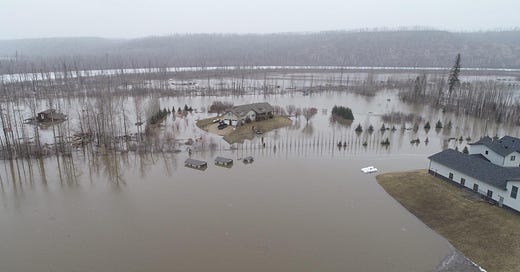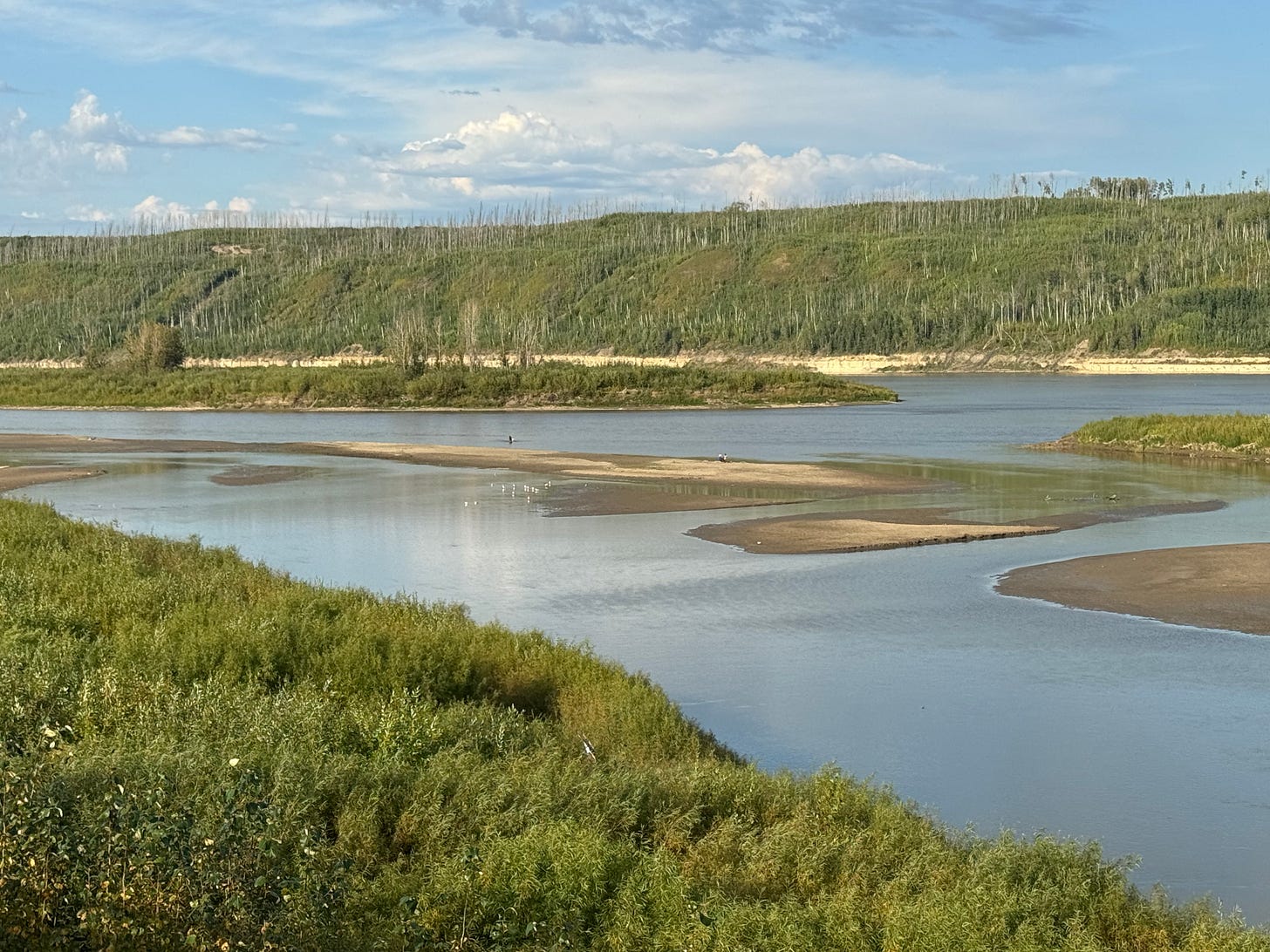Where's the beef, I mean beach? in Fort McMurray, Alberta. CALL TO ACTION We must stop bill C-293
come hell or high water, now come feast or famine
Just four years ago, Fort McMurray was dealing with the aftermath of what was termed a 100-year high water level, flooding the region in ways few could have imagined. Funny how the inferno we went through was called a 100 year fire hmmmm. Fast forward to today, and the landscape has shifted dramatically—so much so that what was once riverbed is now a beach. The contrast is stark, and the explanation we’re being fed is predictable: climate change. But for anyone capable of independent thought, this explanation doesn’t add up
.
The narrative claims that the dramatic drop in water levels is a consequence of what for it—- climate change—an all-encompassing term that seems to be the catch-all explanation for every environmental anomaly. No I am no environmental scientist BUT common sense says this sudden transformation from flooding to drought in just a few years defies the logic of climate patterns that supposedly take decades, if not centuries, to shift so drastically. Ya know follow the science which if it wasn’t so serious would be almost comical.
Another theory being floated is that the water has been siphoned off by helicopters engaged in firefighting efforts. This idea, too, doesn’t hold water (pun intended). The sheer volume of water required to lower a river to such an extent would necessitate an operation on a scale far beyond what’s feasible for fire fighting activities, even in a region as the (newly) fire-prone as Fort McMurray. I have been here for decades and sure little fire here and there after all we are a city built in the middle of the forest. But the size and frequency of the fires of late are not in this old womans memory. Just back up to 2016 when 80% of the town burned down and they did not drain the river to put it out. The largest out of control fire on record!!! and no beaches wtf?
So, if climate change and firefighting aren’t to blame, what is? The more pertinent question might be: why do they want us to believe there’s a water shortage?
Consider this: water is a vital resource, one that, when scarce, can be controlled, rationed, and commodified. A manufactured water crisis, attributed to the convenient villain of climate change, could pave the way for new policies, regulations, and restrictions—each one designed to tighten the grip of those in power over the resources we depend on.
While Bill C-293 is primarily focused on pandemic prevention and public health measures, its broad language and scope could potentially encompass climate change-related issues. While the bill itself does not explicitly mention climate change, the way it is framed allows for the possibility that climate-related risks could be included under the umbrella of pandemic prevention.
This isn’t just about Fort McMurray; it’s part of a broader trend where natural phenomena are increasingly politicized, turning every flood, drought, or fire into another data point in the climate change narrative. But what happens when the evidence doesn’t fit the story? We’re left with questions and a sense that something isn’t quite right.
When we take a closer look at the ambiguity of bill C-293 we can extrapolate that this bill could touch on environmental factors that influence public health, such as air quality, water availability, and land use. Areas that are also central to climate change discussions could open the door for regulations that address “climate change” under the guise of preventing pandemic-related risks.
The beaches in Fort McMurray aren’t just a geological curiosity—they’re a sign that we need to dig deeper, question the narratives being pushed on us, and remain vigilant about the real motives behind the stories we’re being told. It’s time to ask not just where the water went, but why they want us to believe it’s gone
the above picture is people being rescued from their homes during the flood of 2020
oh no look what is growing on the wading pools edge; is that the invasive species called unscented chamomile? If it is the Alberta environment police will have to reclaim that land and fast before anyone researches it medicinal value.
Bill C-293 is designed to regulate "any risk" of a pandemic, which could be interpreted very broadly. Climate change is often linked to public health risks, such as the spread of vector-borne diseases, food and water insecurity, and extreme weather events. Under the bill, these climate-related risks could potentially be included as part of the pandemic prevention strategy.









It's all about cloud seeding, they've been doing it since 1958. Look at the flash flood this year in Dubai...they let the cat out of the bag! Or should I say chemicals out of the ✈️ ✈️ ✈️
https://youtu.be/PbiCRGJ2GOE?si=MEthPXs2g4dCl4nH